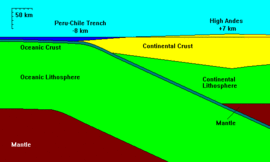Template:Pictorial-Islam-options: Difference between revisions
Jump to navigation
Jump to search
| [checked revision] | [checked revision] |
mNo edit summary |
mNo edit summary |
||
| Line 1: | Line 1: | ||
<noinclude>Also see: [[Template:Pictorial-Islam]]</noinclude><!-- HELP NOTES: Each option tag handles one random story --><choose> | <noinclude>Also see: [[Template:Pictorial-Islam]]</noinclude><!-- HELP NOTES: Each option tag handles one random story --><choose> | ||
<option weight="1">{{Pictorial-Islam|1=The Meaning of Nikah|2=[[File:Lane's Lexicon.jpg|165px|link=The Meaning of Nikah]]|3=This page references and quotes numerous scholarly and/or reliable sources that define or describe the Arabic term nikah (or the root n-k-h) as meaning "sexual intercourse", or the contract of sexual intercourse, or marriage as a contract for sexual intercourse. | |||
"NIKAH: | |||
Literally the act of sexual intercourse, nikah is the term by which marriage is referred to in the Qur'an. Islamic law defines nikah as a civil contract whose main function is to render sexual relations between a man and woman licit. Any sexual relations outside the nikah contract constitute the crime of zina (illicit sexual relations) and are subject to punishment." ([[The Meaning of Nikah|''read more'']])}}</option> | |||
Revision as of 12:49, 18 February 2014
Also see: Template:Pictorial-Islam
|
